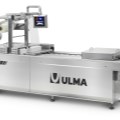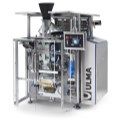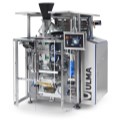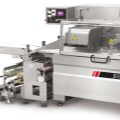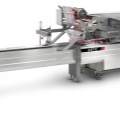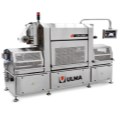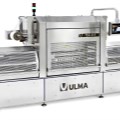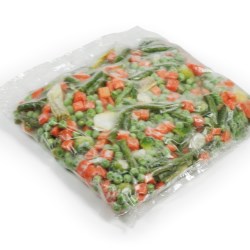If this is your company, CONTACT US to activate Packbase™ software to build your portal.
One of the UK’s leading producers of free range and organic poultry products has reported a boost in productivity and improved shelf life after turning to ULMA Packaging Ltd for innovative tray-sealed skin packaging technology.
Award-winning Traditional Norfolk Poultry (TNP), which already had an ULMA Artic Flowrapper for packaging whole birds, also chose ULMA’s tray sealers to replace a previous supplier’s equipment when its pack house needed pre-formed plastic trays for chicken portions, film lid sealed with modified atmosphere packaging (MAP).
TNP supplies many of the major supermarkets from its facility in Shropham and has an extremely high production throughput of different sized portions such as fillets, wings, legs, thighs and drumsticks, which required ULMA, a leading global supplier of packaging machinery and complete automated lines, to install a flexible, cost-effective, high value tray-sealing solution.
Improving productivity, speed to market and exceptional hygiene standards, as well as extended shelf-life and great store presentation, are part and parcel of what ULMA’s equipment offers and after collaborating with the customer over its requirements it was decided two of the latest tray-sealing applications, the TSA 680 and Taurus 300, ticked all the boxes.
Both machines provide TNP with superior MAP for better shelf life, achieved the production efficiencies needed and improved working conditions by freeing up space on the factory floor, according to TNP’s Sales and Account Manager, Andy Holt.
He said: “Given our previous experience with ULMA we were keen to continue with their equipment. The installation went very smoothly and tool changes on the machines are very straightforward. They provide faster throughput even though we do a range of different portions, while from a hygiene perspective they are better machines because they are very easy to clean.
“We’re probably not using the equipment to its maximum capacity but the advantage of the Taurus is that it allows us to produce bigger packs of the lesser cuts, which also helps with production efficiencies and profitability.”
The automatic TSA 680 traysealer can be integrated into complete lines for all types of trays and different printed top film materials. This equipment has been designed with highly accurate tray positioning. The sealing process can be on one row (single-line) or in two rows (double-line) depending on the formats to be packaged.
Complementing the TSA 680 at TNP, the Taurus 300 is an automatic, very compact tray-sealing machine which assures perfectly hermetically sealed packs for all kind of pre-formed regular trays at high production speeds. The strength of the hermetic seal protects the integrity of the product, keeping juices from seeping out and contaminating surfaces and other products.
Innovative tray-sealing technology – backed up by a complete spares and service support – offers the poultry industry equipment and fully integrated solutions that are highly productive and efficient to meet the growing demand from retailers for exceptional packaging hygiene, extended shelf life, great commercial visibility and speed to market.





